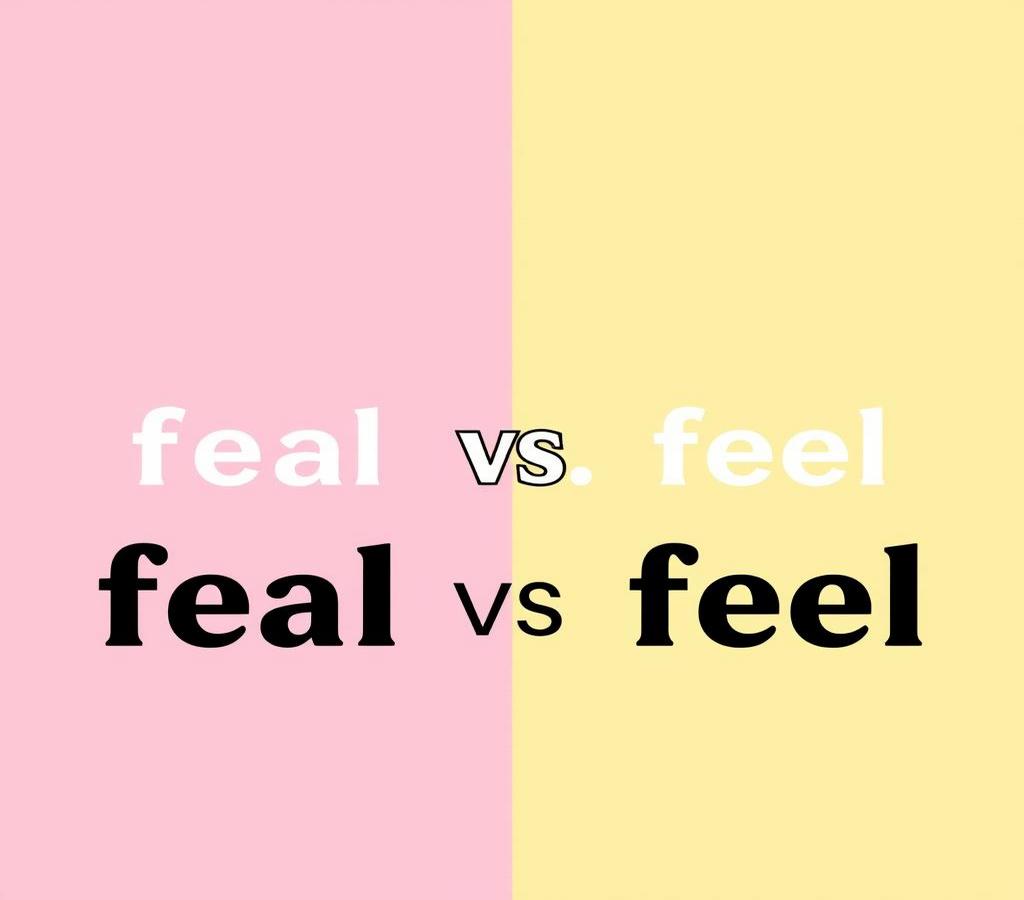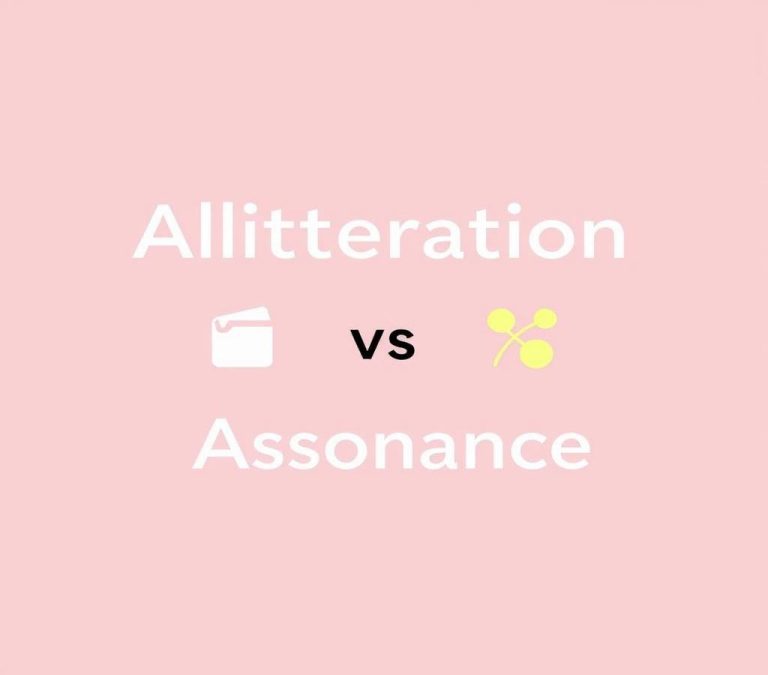Feal vs Feel: Grammar Usage & Correct Word Choices
Understanding the difference between “feal” and “feel” can prevent many writing mistakes. Though “feel” is commonly used, “feal” exists too. Knowing when to use each word correctly will make your writing clearer and more professional. This article will help you understand each word’s meaning and proper usage in everyday writing.
Quick Answer
“Feal” is a rare or obsolete word that means “to touch” or “to handle”. In modern English, use “feel” in most cases, as it’s the correct verb for emotions, sensations, or tactile experiences. For example: “I feel happy”, “I feel the texture of the fabric”, or “I feel tired”. If you’re unsure, try replacing “feal” with “feel” in your sentence – if it still makes sense, then “feel” is the correct choice.
Why There is Confusion
The confusion between “feal” and “feel” primarily arises due to their similar spelling and phonetic characteristics. Both words consist of the same letters, except for one, making them easy to mix up. People may come across these words in different contexts, leading to uncertainty about their correct usage. Additionally, the English language has many homophones (words that sound alike but have different meanings), which further complicates the matter. As such, distinguishing between “feal” and “feel” is essential to ensure accurate communication.
What Does “Feel” Mean?
The word “feel” is a verb that refers to the act of perceiving or sensing something through touch or emotion. It is an essential term in the English language, often used in various contexts, ranging from physical sensations to emotional experiences.
For example:
- She feels cold in the winter.
- I feel happy today.
In the first sentence, “feel” refers to the physical sensation of temperature. In the second sentence, it denotes an emotional state. This versatility makes “feel” a common and useful word in daily communication.
What Does “Feal” Mean?
The word “feal” is an archaic term and is no longer in common usage. Historically, “feal” was used as an adjective meaning faithful, loyal, or trustworthy. It primarily appears in older literature and may occasionally be encountered in poetic or historical contexts.
For instance:
- He was a feal servant to the king.
In this example, “feal” describes the servant’s loyalty and faithfulness to the king. Modern English speakers rarely use “feal,” and it has largely been replaced by words like “faithful” or “loyal.”
Differences between “Feal” and “Feel”
Differences in Parts of Speech
“Feel” functions primarily as a verb but can also be used as a noun in certain contexts (e.g., “I have a good feel for the game”). As a verb, it describes the action of sensing or perceiving.
Examples:
- Verb: I feel the warmth of the sun.
- Noun: She has a feel for languages.
On the other hand, “feal” is strictly an adjective, describing a characteristic of being loyal or faithful.
Examples:
- Adjective: He remained feal to his friend.
Differences in Meaning and Connotation
The meanings of “feel” and “feal” are entirely different. “Feel” relates to sensory or emotional experiences, making it a practical and versatile term in everyday language. It carries a neutral connotation and can be applied in various contexts, from describing physical sensations to conveying emotional states.
In contrast, “feal” is limited to describing fidelity or loyalty. It has a positive connotation but is rarely used in modern language. Its usage might invoke a sense of antiquity or historical context.
Differences in Usage and Context
“Feel” is widely used across multiple contexts, including:
- Physical sensations: I feel pain in my leg.
- Emotions: She feels joy when she sees her children.
- Intuition or perceptions: I feel he is not telling the truth.
“Feal,” on the other hand, is almost exclusively found in historical or literary contexts:
- Historical texts: The knight was feal to his lord.
- Poetry: His feal heart was pure and true.
Since “feal” is archaic, it isn’t commonly used in modern writing or speech.
Synonyms for “Feal” and “Feel”
Synonyms for “Feal”
As “feal” is an outdated term, modern equivalents or synonyms would be more commonly understood:
- Faithful
- Loyal
- Devoted
- Trustworthy
For example:
- He was a loyal servant to the king.
- She remains faithful to her principles.
Synonyms for “Feel”
Synonyms for “feel” vary based on context, as it encompasses both physical and emotional sensations:
- Sensations or physical touch:
- Sense
- Perceive
- Touch
- Emotional experiences:
- Experience
- Undergo
- Sense (emotionally)
- React
For example:
- I sense the cold air.
- She experiences joy when she sees her friends.
Examples of Usage for “Feal” and “Feel”
To further clarify the appropriate usage of each term, let’s examine some examples:
Feel:
- After jogging in the rain, I feel cold and drenched.
- Can you feel the texture of this fabric?
- She feels a deep sense of gratitude for the support.
- He felt tired after working all day.
Feal:
- The knights were feal to their liege lord.
- In his letters, he described himself as a feal subject.
- The poet spoke of a feal lover who never betrayed.
These examples illustrate how “feel” is used in contemporary sentences to express sensations and emotions. In contrast, “feal” is limited to older, more formal contexts describing loyalty or fidelity.
Conclusion: Which One Should You Use?
In modern usage, “feel” is the word you should use. It is a versatile verb and noun that can describe a wide range of physical sensations, emotional experiences, and perceptions. Whether you’re talking about feeling happy, feeling cold, or feeling an object, “feel” is the appropriate choice.
“Feal,” on the other hand, is an archaic term that is rarely used in contemporary language. Although it means faithful or loyal, its place in modern English has been taken by words like “faithful,” “loyal,” and “devoted.” Hence, “feal” is typically only used for creating an antiquated or historical feel in literature or poetry.
Understanding the differences between “feel” and “feal,” including their meanings, parts of speech, usage contexts, and synonyms, ensures clear and effective communication. While “feel” plays a significant role in everyday language, “feal” remains a relic of the past—a word that once described loyalty, now mostly confined to history books.
In conclusion, whenever you are writing or speaking and need to describe a sensation, emotion, or perception, “feel” is the word to choose. “Feal” might be interesting from a historical perspective, but it has little place in modern communication.







